An international collaboration sheds new light on the relationship between quantum theory and thermodynamics. The research group demonstrated that while the laws of quantum theory alone do not inherently prevent violations of the second law of thermodynamics, any quantum process can be implemented without actually violating the law.
This surprising result suggests a peaceful coexistence between quantum theory and thermodynamics, despite their logical independence. This discovery could have profound implications for understanding the thermodynamic limits of quantum technologies, such as quantum computing and nanoscale engines.
Despite its foundational role, the second law remains one of the most debated and misunderstood principles in science. Central to this debate is the paradox of"Maxwell's Demon," a thought experiment proposed by physicist James Clerk Maxwell in 1867. To explore this phenomenon further, the researchers developed a mathematical model for a"demonic engine," a system powered by Maxwell's demon. Their approach is rooted in the theory of quantum instruments, a framework introduced in the 1970s and 1980s to describe the most general forms of quantum measurement.
"Our results showed that under certain conditions permitted by quantum theory, even after accounting for all costs, the work extracted can exceed the work expended, seemingly violating the second law of thermodynamics," explained Shintaro Minagawa, a lead researcher on the project."This revelation was as exciting as it was unexpected, challenging the assumption that quantum theory is inherently 'demon-proof.
"One thing we show in this paper is that quantum theory is really logically independent of the second law of thermodynamics. That is, it can violate the law simply because it does not 'know' about it at all," Francesco Buscemi explained."And yet -- and this is just as remarkable -- any quantum process can be realized without violating the second law of thermodynamics. This can be done by adding more systems until the thermodynamic balance is restored.
Computers And Internet Spintronics Research Encryption Hacking Mathematical Modeling Mathematics Statistics
United States Latest News, United States Headlines
Similar News:You can also read news stories similar to this one that we have collected from other news sources.
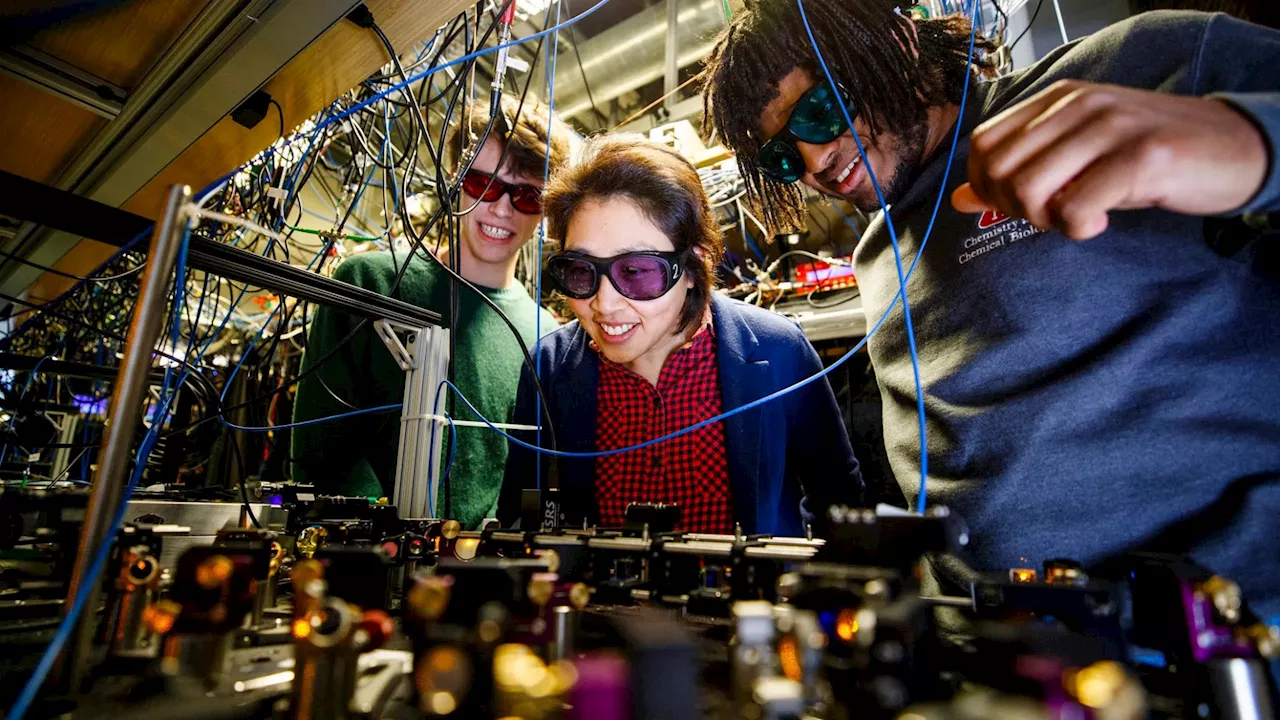 Harvard Scientists Trap Molecules for Quantum Operations, Ushering in a New Era of Quantum ComputingFor the first time, scientists have successfully trapped molecules and used them to perform quantum operations, marking a significant leap forward in the field of quantum computing. This breakthrough opens up new possibilities for building more powerful and versatile quantum computers.
Harvard Scientists Trap Molecules for Quantum Operations, Ushering in a New Era of Quantum ComputingFor the first time, scientists have successfully trapped molecules and used them to perform quantum operations, marking a significant leap forward in the field of quantum computing. This breakthrough opens up new possibilities for building more powerful and versatile quantum computers.
Read more »
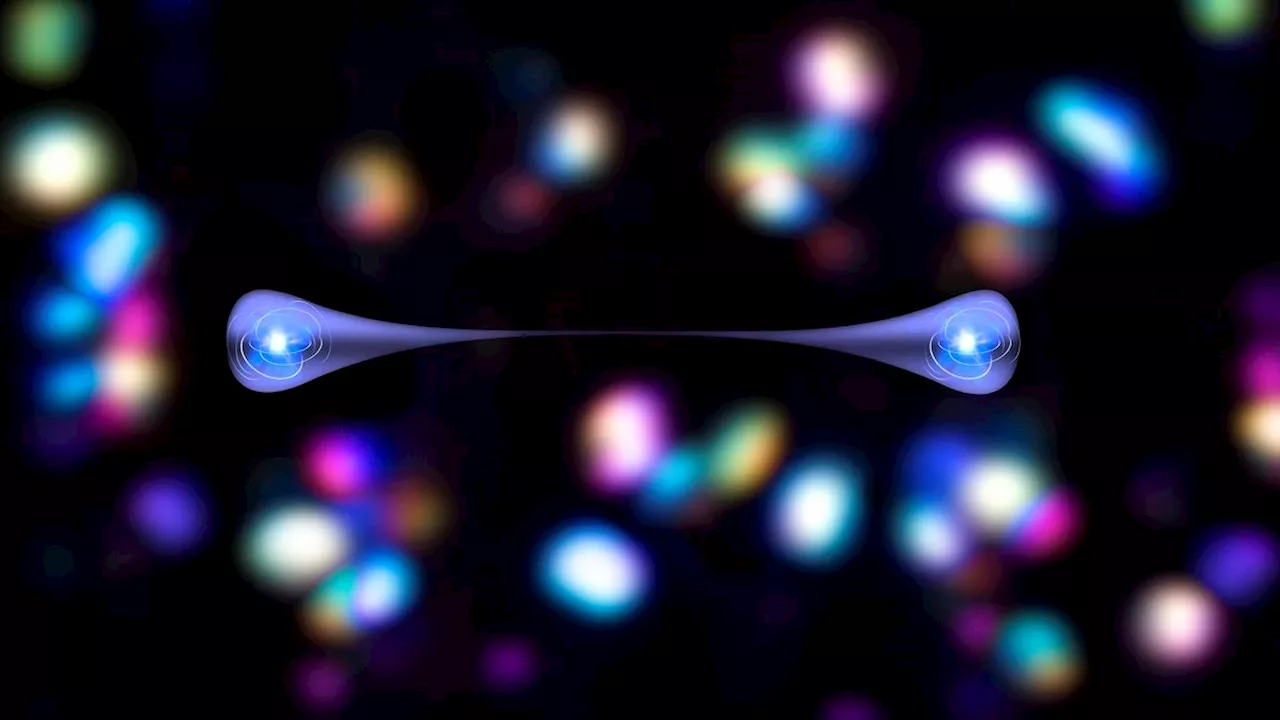 Scientists Discover New Quantum State in 2D Semiconductors, Paving the Way for More Powerful Quantum ComputingResearchers at the Daegu Gyeongbuk Institute of Science and Technology have made a significant breakthrough in quantum computing by discovering a new quantum state within two-dimensional (2D) semiconductor chips. This discovery offers a promising path for controlling quantum information with enhanced reliability, potentially leading to more powerful and efficient quantum computers.
Scientists Discover New Quantum State in 2D Semiconductors, Paving the Way for More Powerful Quantum ComputingResearchers at the Daegu Gyeongbuk Institute of Science and Technology have made a significant breakthrough in quantum computing by discovering a new quantum state within two-dimensional (2D) semiconductor chips. This discovery offers a promising path for controlling quantum information with enhanced reliability, potentially leading to more powerful and efficient quantum computers.
Read more »
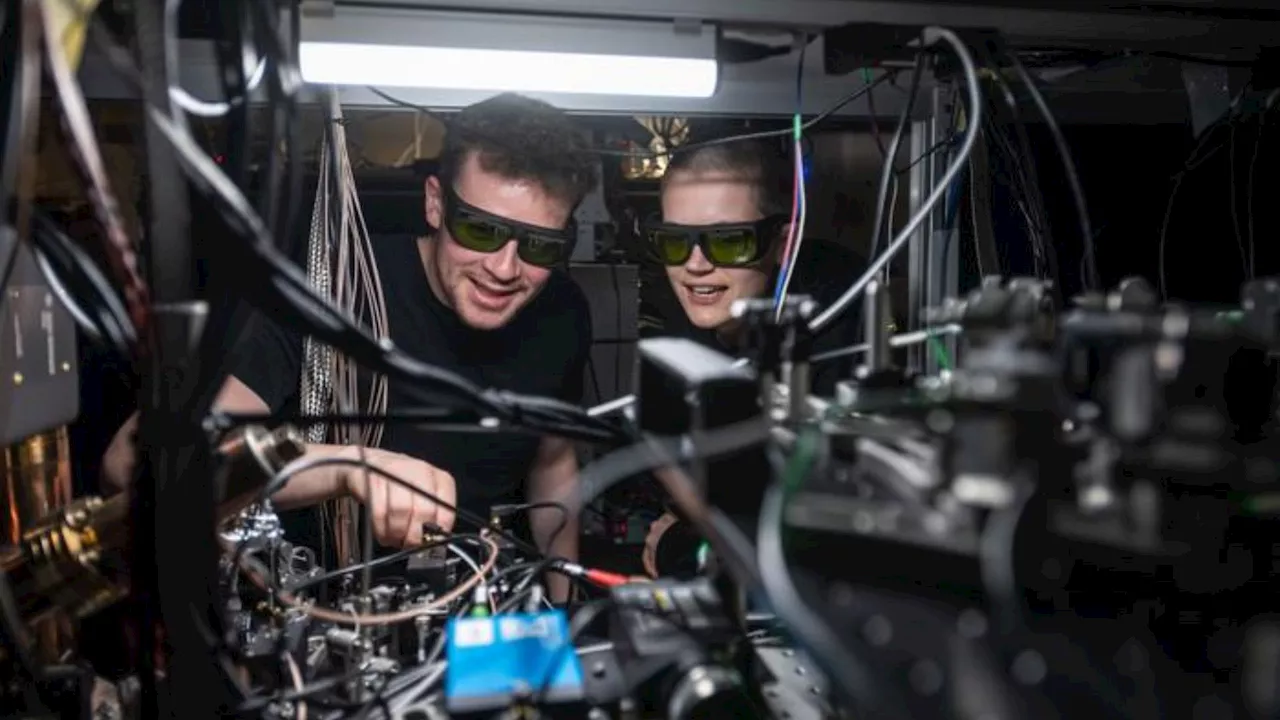 Oxford Researchers Achieve Quantum Teleportation of Logical Gates, Paving the Way for Scalable Quantum ComputingA team of researchers at Oxford University Physics has made a significant breakthrough in quantum computing by successfully demonstrating the first-ever quantum teleportation of logical gates. This achievement paves the way for building larger, more powerful quantum computers and overcomes the scalability challenges that have long hindered their progress.
Oxford Researchers Achieve Quantum Teleportation of Logical Gates, Paving the Way for Scalable Quantum ComputingA team of researchers at Oxford University Physics has made a significant breakthrough in quantum computing by successfully demonstrating the first-ever quantum teleportation of logical gates. This achievement paves the way for building larger, more powerful quantum computers and overcomes the scalability challenges that have long hindered their progress.
Read more »
 Quantum Leap: Scientists Achieve Distributed Quantum ComputingScientists at Oxford University Physics have successfully connected two separate quantum processors using a photonic network interface, creating the first distributed quantum computer. This breakthrough paves the way for tackling complex computational challenges and addresses the scalability issue in quantum computing.
Quantum Leap: Scientists Achieve Distributed Quantum ComputingScientists at Oxford University Physics have successfully connected two separate quantum processors using a photonic network interface, creating the first distributed quantum computer. This breakthrough paves the way for tackling complex computational challenges and addresses the scalability issue in quantum computing.
Read more »
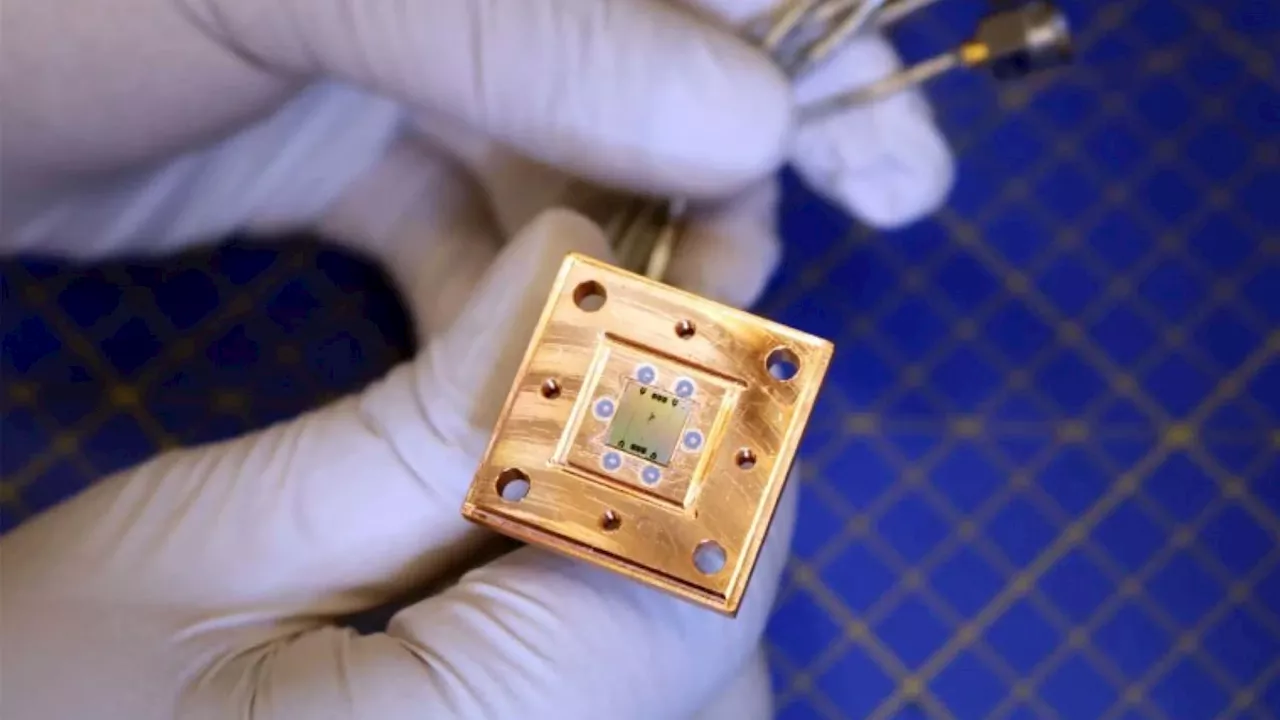 Autonomous Quantum Refrigerator Achieves Record-Low Temperature, Boosting Quantum Computer PerformanceScientists have developed a new type of autonomous quantum refrigerator that can cool qubits to a record-low temperature of 22 millikelvin. This breakthrough could significantly improve the performance and reliability of quantum computers by reducing errors caused by environmental disturbances.
Autonomous Quantum Refrigerator Achieves Record-Low Temperature, Boosting Quantum Computer PerformanceScientists have developed a new type of autonomous quantum refrigerator that can cool qubits to a record-low temperature of 22 millikelvin. This breakthrough could significantly improve the performance and reliability of quantum computers by reducing errors caused by environmental disturbances.
Read more »
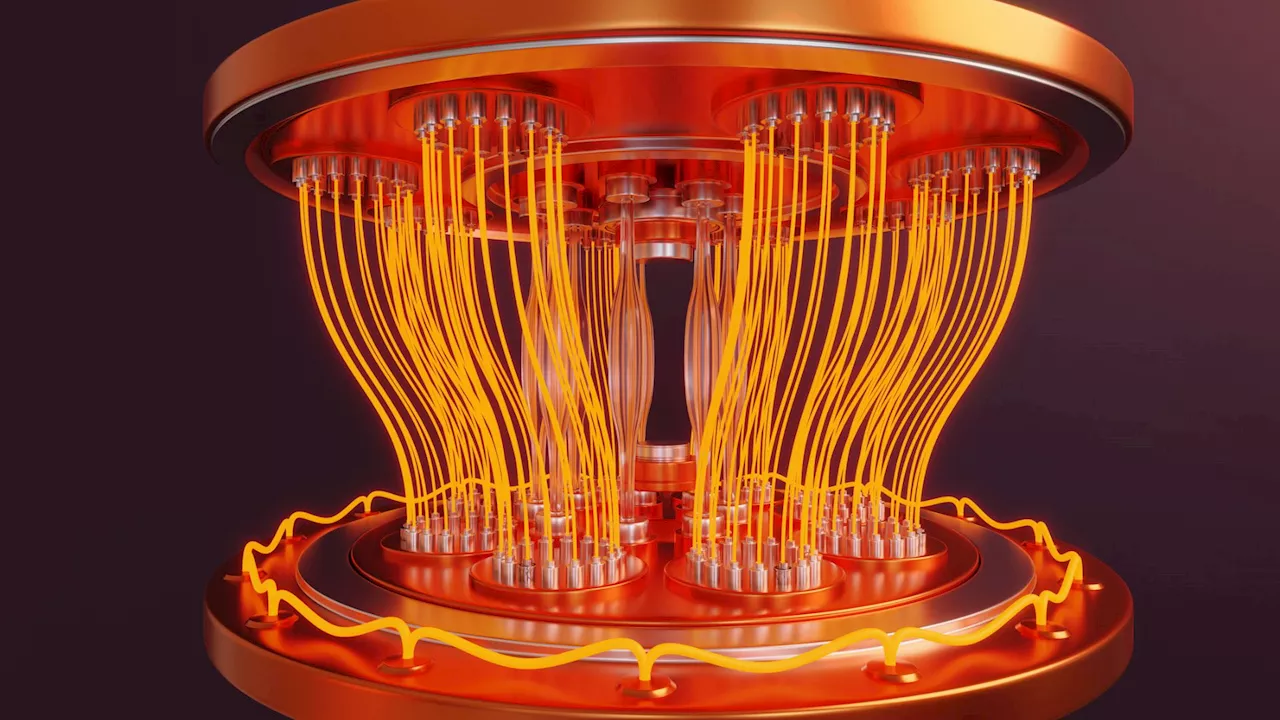 SEALSQ Unveils World's First Quantum-Resistant Secure HardwareSwiss semiconductor company SEALSQ introduces its latest platform, QS7001, designed to provide quantum-resistant security. This breakthrough technology utilizes post-quantum cryptography algorithms, KYBER and DILITHIUM, to protect against attacks from both current and future quantum computers. The platform meets FIPS and Common Criteria standards and offers advantages in energy efficiency and performance compared to traditional secure microcontrollers. This development positions SEALSQ as a leader in the quantum-resistant hardware market, addressing the growing need for secure solutions in the age of quantum computing.
SEALSQ Unveils World's First Quantum-Resistant Secure HardwareSwiss semiconductor company SEALSQ introduces its latest platform, QS7001, designed to provide quantum-resistant security. This breakthrough technology utilizes post-quantum cryptography algorithms, KYBER and DILITHIUM, to protect against attacks from both current and future quantum computers. The platform meets FIPS and Common Criteria standards and offers advantages in energy efficiency and performance compared to traditional secure microcontrollers. This development positions SEALSQ as a leader in the quantum-resistant hardware market, addressing the growing need for secure solutions in the age of quantum computing.
Read more »
